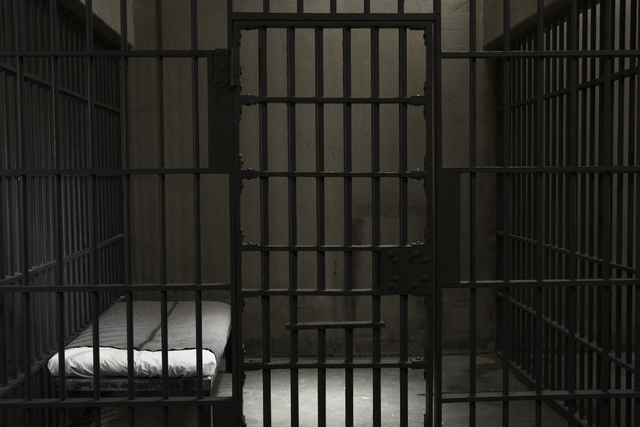Report: Cost of juvenile incarceration high in Nevada
The cost to incarcerate a juvenile in Nevada’s most expensive correctional facility for youth was about $195,406 in fiscal year 2014, according to a report released Tuesday.
The report, “Sticker Shock: Calculating the Full Price Tag for Youth Incarceration,” published by the Washington-based Justice Policy Institute, found that 33 states and jurisdictions spend $100,000 or more per juvenile inmate annually. New York was the biggest spender, at $352,663 per juvenile inmate at its most expensive facility. Nevada ranked 13th among the 46 jurisdictions covered in the report.
But the expenses don’t stop with the prisons. The estimated overall costs resulting from negative outcomes associated with incarceration and the long-term consequences could cost taxpayers between $8 billion to $21 billion a year nationwide, according to the report.
The billions of dollars in hidden costs result from young offenders who are released but go on to earn lower wages, pay less in taxes, and have a greater dependence upon government assistance and higher rates of being incarcerated again, according to the report.
Nevada’s cost is so high because researchers selected the most expensive confinement option in the summer and fall of 2014, which was Red Rock Academy at Summit View, according to Chrystal Main, spokeswoman for the state’s Division of Child and Family Services, which oversees the state’s three juvenile correctional facilities.
“The cost per day in (fiscal year) 2014 included initial one-time costs associated with the reopening of the facility and a very small average daily population,” she said Monday.
The facility, which opened in December 2013 or 2014, is operated by Rite of Passage, a nonprofit organization.
The cost to house an inmate at Red Rock Academy — the state’s only maximum-security facility for youth — was estimated to be $195,406 per year, according to the study. The rates were compiled using each facility budget divided by occupied bed days.
The cost per bed in fiscal year 2014 at the Nevada Youth Training Center in Elko was $117,971 per year, according to the report. The cost per bed during the same time period at the Caliente Youth Center was $69,076 per year. As of Monday, there were 189 juveniles committed to the state’s correctional juvenile justice facilities, according to Main.
The state Division of Child and Family Services tracks recidivism rates, but wasn’t able to provide them Monday.
In Clark County, the number of youth being committed to a state juvenile correctional facility has progressively declined over the past eight years. In 2014, the number of youth committed to a state juvenile correctional facility was 184 compared to 374 in 2007, according to Clark County juvenile justice data.
“We are keeping more kids in the community,” Clark County Family Court Judge William Voy said on Monday, adding that the number of youth placed in out-of-state residential facilities has also been reduced.
A couple of things can be attributed to the decrease locally, he said, such as having intensive supervision and community resources to meet individual needs.
The decrease of youth commitments to state juvenile correctional facilities is not unique to the local area. Voy said that’s a “nationwide trend,” although he wasn’t sure what were the contributing factors at the national level.
“Maybe it’s just an awareness, people taking a harder look at what we are doing with kids and how we are handling kids,” he said. “Community-based services is the better way to go” as it provides better outcomes, lower return rates and better long-term results.
However, locally and nationally, African-American and Hispanic youth still represent the largest number of commitments, according to local data and the report. Local juvenile justice officials have said that everyone is better off and money is saved by helping divert youth with minor offenses from going into the system or from being committed to a higher-level facility, such as a state correctional facility.
When a youth is incarcerated, they’re more likely to advance into the adult criminal system, Voy said.
The Clark County Department of Juvenile Justice Services hopes to have its evening reporting center operating by the spring. The center will help to better supervise juvenile delinquents, offering school programming, mental health services and drug counseling, among other services.
“It’s a win-win situation,” Voy said of keeping youth out of the system.
Contact Yesenia Amaro at yamaro@reviewjournal.com or 702-383-0440. Follow @YeseniaAmaro on Twitter.
By the numbers …
$195,406
Yearly cost for one person at Red Rock Academy at Summit View
By comparison, the median price of a single-family home is just over $200,000.
$96,365
Six-month cost at Summit View
That won’t quite get you into a condo in Las Vegas, but you’re only about $15,000 short.
$536
Single-day cost at Summit View
That would pay about 7 months of health insurance premiums for a 25-year-old Las Vegan making $22,000 a year.




























